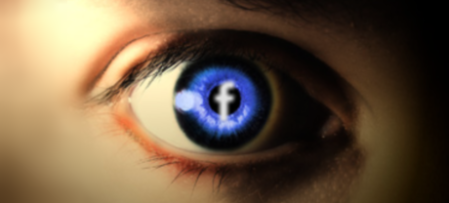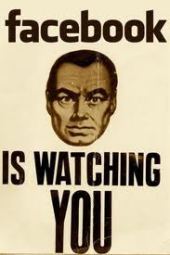
I feel the need to put into words some of the mental ramblings that have been preoccupying me of late. I apologise for any lack of coherence herein, please bear in mind that in some respects I am just thinking aloud.
Big changes are happening to the political landscape. Could this be the beginning of the end for Democracy in Europe? Are we being ushered into the new age of the Technate as a last-ditch attempt at saving free market Capitalism? It is far too early to tell, and I am certainly no expert in the subject, but I feel this is something we must strive to understand, and quickly, before it is too late to stop what may have been already set in motion.
Italy and Greece have now had their democratically elected governments removed, and in their place Technocratic administrations have been imposed, to make the “unpopular” decisions required to rescue their respective economies. Milanese students took to the streets yesterday to protest against this unelected “bankers’ government”. Police responded by charging the students with batons. In Athens too, violence broke out in protest against the new unity government, as thousands of demonstrators and anarchists met with thousands of police officers armed with “stun grenades”. “Down with the government of socialists, conservatives and fascists,” a protester’s banner said. Greece’s third largest party, the Communists, and the smaller leftist Syriza party have pledged to fight to bring down the government to prevent further cuts, in a country mired in a deep recession since 2008.
When I imagine a world run by Technocrats enforcing strict economic restraints, I am reminded of George Lucas’s Kafkaesque debut feature, THX 1138 – a dystopian nightmare vision in which human emotion is controlled through government-administered narcotics, where names are replaced by codes, people become numbers and every aspect of life is run to a stringent budget. The film is extremely cogent and leaves a lasting impression, akin to that of Huxley’s Brave New World or Terry Gilliam’s outstanding feature film, Brazil. It highlights the inhumanity, latent within bureaucratic systems of control, the dangers of totalitarianism and the fragility of freedom. But surely the fledgling Technocracies of Italy and Greece will be very different from this bleak cinematic experience? Surely this sort of dark fantasy could not be actualized in 21st Century Europe? What happens when you forcibly remove Democracy, does freedom vanish overnight? Are we on the brink of something sinister?
While THX 1138 certainly raises important issues and warns us of the potential dangers of such systems, it could just as easily be seen to be an overly simplistic and overtly sensationalist critique of Soviet Communism – and while this agenda may do nothing to undermine the legitimacy of its harrowing message, because of this bias we cannot rely on it, in any way, to tell us about the true nature of Technocracy.
So what the hell is Technocracy? It is a concept few people understand.
According to the fountain of knowledge that is Wikipedia, Technocracy is a form of government where important decisions are made by scientists and experts, rather than elected politicians.
Technocracy is a form of government where technical experts are in control of decision making in their respective fields. Engineers, scientists, health professionals, and those who have knowledge, expertise or skills would compose the governing body. In a technocracy, decision makers would be selected based upon how knowledgeable and skillful they are in their field.
Technical and leadership skills would be selected through bureaucratic processes on the basis of specialized knowledge and performance, rather than democratic election by those without such knowledge or skill deemed necessary. Some forms of technocracy are envisioned as a form of meritocracy, a system where the “most qualified” and those who decide the validity of qualifications are the same people. Other forms have been described as not being an oligarchic human group of controllers, but rather administration by discipline-specific science, ostensibly without the influence of special interest groups.[1]
As of 2011, Italy has a technocratic goverment – see Monti Cabinet.
Politics is supposedly about ideals and morals as much as it is about systems’ management, but this aspect seems missing from the Technocratic vision. The primary problem with this sort of government must be to do with accountability. How can you be sure the experts placed in charge are working in the best interests of the people, and not merely serving their own interests or those of a wealthy ruling elite? In a Democratic system, at least the people can supposedly vote-out a government that is not working for them – although you often hit upon the problem that none of the electable parties are working for the people!
What may come as a surprise to some, is that many of the trailblazers of Technocracy, were some of the great thinkers on the historic Left, such as Henri de Saint-Simon and Friedrich Engels, who believed an authoritarian, State-controlled economy, was the only way of creating and preserving an egalitarian society. A scientific socialist theorist, Engels envisaged that the state would eventually die out and cease to be a state, when the government of people and interference in social affairs was replaced by an administration of things and technical processes – a sort of anarchic Technocracy. But surely this sort of system can only exist in a positive state if the people have given their consent to this sort of economic management – otherwise ruthless control of those people is needed to keep that system in place – and you are back to totalitarianism, THX 1138, Huxley et al. I doubt this is what Engels had in mind. Unchecked rule by bureaucrats has become a trademark of totalitarian regimes, such as those that existed in Nazi Germany and Soviet Russia. George Orwell described Technocracy as a precursor to Fascism. What was Adolf Eichmann if not a Technocrat? How can this be reconciled with Socialism?
More “wisdom” from Wikipedia:
In the economy of the Soviet Union, state ownership of the means of production was combined with central planning, in relation to which goods and services were to be provided, how they were to be produced, the quantities, and the sale prices. Soviet economic planning was an alternative to allowing the market (supply and demand) to determine prices for producer and consumer goods. The Soviet economy utilized material balance accounting in order to balance the supply of available inputs with output targets, although this never totally replaced financial accounting. Although the Soviet economy was nominally a centrally-planned economy, in practice the plan was formulated on-the-go as information was collected and relayed from enterprises to planning ministries.
Socialist economists and political theorists have criticised the notion that the Soviet-style planned economies were socialist economies. They argue that the Soviet economy was structured upon the accumulation of capital and the extraction of surplus value from the working class by the planning agency in order to reinvest this surplus in new production – or to distribute to managers and senior officials, indicating the Soviet Union (and other Soviet-style economies) were state capitalist economies. Other socialists have focused on the lack of self-management, the existence of financial calculation and a bureaucratic elite based on hierarchical and centralized powers of authority in the Soviet model, leading them to conclude that they were not socialist but either bureaucratic collectivism, state capitalism or deformed workers’states.
Or indeed Technocracies. Certainly my own political awakening and evolution has been marred by these past failings by supposed Marxists, trying to impose a “fair” economic system through extreme authoritarian control, the so-called Thermidorian phase – and while I can see why such a conservative period, post-revolution, may be necessary to establish a new system, my gut reaction to an all-powerful state is simply to fight it. How can a Technocracy ever be considered socialist if the people have no say in how it is being run? It simply becomes another system of control, where a ruling elite of “experts” is in charge and the masses do as they are told.
I very much doubt that these new Technocratic governments in Europe will begin to resemble Stalin’s bureaucrats – they are all working for the bankers and the existing financial elite after all, a system which relies on the free market. But this opens up a bigger debate for anyone left on the Left, for all those involved in the Occupy movement worldwide, and for all those who wish to end predatory capitalism. It reveals a dichotomy in my own thinking that just won’t go away. How do you create a fairer society without destroying people’s freedom?
I sometimes feel I have the head of a Marxist and the body of an Anarchist, and although they are fighting for the same thing, they are also fighting with each other and differ very much in how to go about it. When I take the Political Compass test, I come out as extreme Left Liberal – or Anarchist.

This is how you’d expect a Lefty with an aversion to all authority to come out! Freedom is the embodiment of Anarchism. The act of fighting for freedom is Revolution. All revolutionaries in the act of revolution are therefore Anarchists!
But that is not the end of the story. I sometimes think that being a Left Libertarian may actually be a contradiction in terms. I have read papers on the subject which have made me think a little differently about what Liberalism actually means. That Left and Right are divergences towards state-control from either side of a Liberal centre-ground, that resembles Laissez-faire capitalism – commerce without government intervention – or “freedom to trade”. I am also very aware that the importance placed in Individual Freedom is often at the expense of the collective good. People re-branded in their own minds as consumers place their own choices and freedoms above all else – and this props up and encourages free market capitalism, begging the “devils-advocate” question: is capitalism the natural outcome of Anarchy? I’m not so sure about this, but there are many who think so.
Many Neo-liberalists, individualists, mutualists, economists and advocates of the free market consider themselves Anarchists to some degree – people such as Friedman, Murray Rothbard and even Ayn Rand believed in freedom of the individual and reduction or elimination of the state. Murray Rothbard maintains that Anarcho-Capitalism is the only true form of Anarchism. I’m not saying that I agree with this at all, or that I cannot conceive of an Anarchist society being fair and egalitarian – but it does flag up an important question. Would people be any safer from exploitation without the state? And now I feel like a Socialist again!
I have no answers to any of these questions, I’ll be the first to admit. But I am, at least, asking them!
One of the problems with the current resistance movements across the world (fighting corporate greed and for the rights of the 99%) is that by and large they aren’t asking these questions. They reject all prior political movements and “-isms” without proffering any alternatives. The lack of any solid theory behind the movement, and knowledge of prior political ideas, may be its undoing. If you reject Communism, Socialism, Corporatism, Free-Market Capitalism and Technocracy as systems that have failed, what do you accept? What, indeed, are you fighting for?
I can understand why the Occupy movement and Anonymous, and others, reject being pigeonholed politically – all these old political philosophies have their pitfalls and problems. But I do oppose the idea that a new system will emerge out of nowhere, with no reference to, or study of, systems and ideas that have come before. Without a deep historical understanding of these things, we may be doomed to repeat the mistakes of the past.
It really does feel like the movement is in its infancy in this respect. There is a naivety at its core which belies its noble intent. My chief concern is that while the movement is working out what it is, trying to answer crucial questions like: Can you have real Freedom and real Fairness? What replaces Capitalism if it falls? How will we fight all those that oppose us? While we are all still finding our feet, Technocracy may well sneak in and take over by the backdoor, supplanting democracy, and all our freedoms and hopes for fairness may be usurped. Social engineers and psychologists may be brought-in by the new management team, to deal with these voices of dissent, which are so detrimental to the national credit rating. People’s beliefs and opinions and rights are of no value when there are severe deficits to reduce. They do not compute. The chants from protesters may disappear as the subsequent crackdowns intensify, then triumph, and all that can then be heard, above the gentle hum of myriad machines, is a muffled whisper: “I am not a number”
November 18, 2011
Categories: Film, Ideas, News, Other, Philosophy, Politics, Rant, Repression, Revolution, Science, Science Fiction, Sociology, Technology, War, Writing . Tags: Anarchism, communism, democracy, freedom, marxism, technocracy . Author: Micolagist . Comments: 7 Comments



















 Someone introduced me to the AdBlock browser extension the other day, it’s 100% free and it actually works really effectively. You don’t notice it in action until you go onto a webpage which would normally have a load of adverts (like a video file hosting site for example) and there is just a mass of beautiful blank space where the ad banners usually are!
Someone introduced me to the AdBlock browser extension the other day, it’s 100% free and it actually works really effectively. You don’t notice it in action until you go onto a webpage which would normally have a load of adverts (like a video file hosting site for example) and there is just a mass of beautiful blank space where the ad banners usually are!
